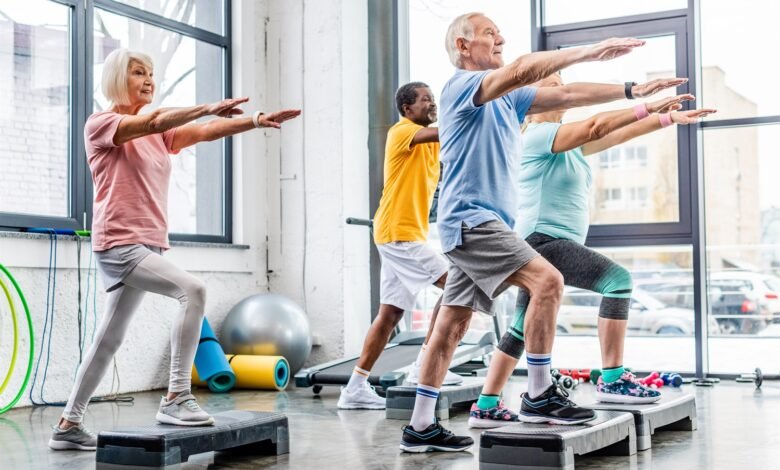
Introduction
Human existence has included exercise as a necessary component for generations. Physical exercise, whether it’s a quiet walk in the park or a strenuous gym session, has several advantages. This essay will explore the importance of exercise in our lives and highlight its benefits on a physical, mental, and emotional level.
Physical Advantages
Numerous advantages of regular physical exercise make it vital for keeping the body healthy.
Improvement of Cardiovascular Health
Your cardiovascular health can be greatly enhanced by exercising, such as brisk walking or jogging. It helps to maintain healthy blood pressure and strengthens the heart while lowering the risk of heart problems.
Weight Control
Do you want to maintain a healthy weight or lose those extra pounds? The secret is exercise. It is a crucial part of any weight loss program because it increases metabolism and aids in calorie burning.
Increasing power and flexibility
Strength training exercises can help you increase your flexibility and muscle mass. Your overall physical performance is subsequently enhanced, and injury risk is decreased.
Exercise’s Effect on Bone Health
Exercise is essential for maintaining strong bones, especially in weight-bearing activities like running and weightlifting. It is crucial for guarding against fractures and osteoporosis.
Exercise’s Positive Effects on Mental and Emotional Well-Being Exercise has a significant positive effect on both your mental and emotional well-being.
Physical Health:
Improved Cardiovascular Health: Regular exercise strengthens the heart, improves circulation, and lowers the risk of heart diseases, including heart attacks and stroke.
Weight Management: Exercise helps with weight loss and weight maintenance by burning calories and increasing metabolism.
Muscle and Bone Health: It promotes muscle strength and bone density, reducing the risk of osteoporosis and fractures.
Enhanced Immune Function: Moderate exercise can boost the immune system, making the body more resilient to illnesses
Stress and anxiety reduction
Endorphins, which are natural stress relievers, are released when people engage in regular physical activity. It fosters a sense of well-being and lessens anxiety.
Increasing Cognitive Performance
Exercise has been demonstrated to enhance cognitive function, including memory, concentration, and problem-solving abilities. It’s an effective tool for maintaining mental acuity.
Increasing Mood
Do you feel down? Your spirits can be raised by exercise. As it encourages the release of serotonin and dopamine, the “feel-good” neurotransmitters, it is a natural mood booster.
Exercise’s Effect on Sleep
Sleeping problems? Regular exercise can enhance the quality of your sleep, facilitating both sleep onset and sleep maintenance.
Exercise’s Contribution to Emotional Resilience
Managing Stress
You develop resilience through exercise, which helps you deal with stress more skillfully. It supports a positive outlook as you navigate the difficulties of life.
Conclusion
Exercise plays a variety of roles in our lives. It improves our mental and emotional health as well as our physical health, giving us the ability to live happier, healthier lives. Exercise should be a part of your daily routine whether you are an experienced fitness enthusiast or are just beginning your journey.
Frequently Asked Questions (FAQs)
Q: How much physical activity should I get each day?
A: 150 minutes of moderate-intensity aerobic activity or 75 minutes of vigorous-intensity activity per week are the recommended amounts of exercise.
Q: Can someone with a chronic health condition exercise?
A: Generally speaking, yes. However, in order to choose the best exercise regimen for your condition, you must speak with a healthcare provider.
Q: Which is better, morning or evening exercise?
A: Everyone has a different ideal time for working out. Pick a time that fits both your schedule and your energy level.
Q: What kinds of physical activity are best for mental health?
A: Physical activity of any kind that you enjoy can be good for your mental health. Popular options include swimming, walking, and yoga.
Q: Can physical activity combat depression?
A: Exercise can be a helpful addition to other depressive disorder treatments. Your mood can be lifted by the neurotransmitters that are released.
Q: How can I continue to be inspired to work out regularly?
A: Making attainable goals, finding a workout partner, and switching up your routine can all help keep your motivation to exercise high.
For more articles like this click here.


